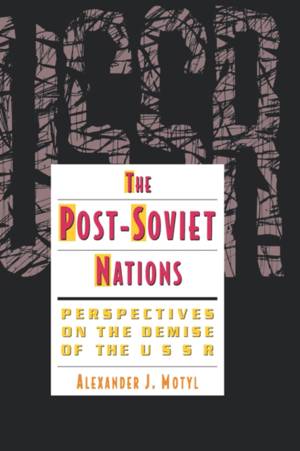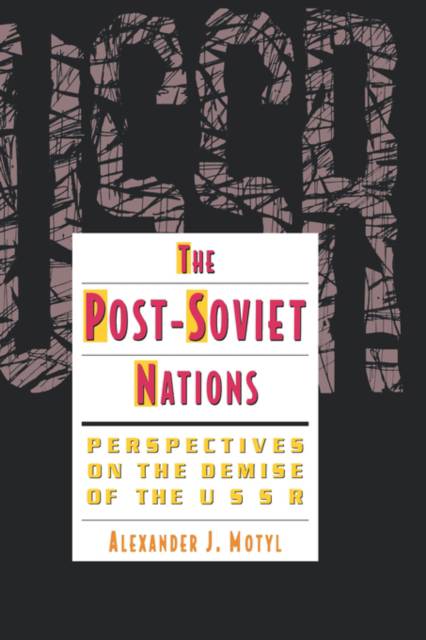
- Afhalen na 1 uur in een winkel met voorraad
- Gratis thuislevering in België vanaf € 30
- Ruim aanbod met 7 miljoen producten
- Afhalen na 1 uur in een winkel met voorraad
- Gratis thuislevering in België vanaf € 30
- Ruim aanbod met 7 miljoen producten
Zoeken
€ 203,95
+ 407 punten
Omschrijving
How must Sovietology change as a result of the Soviet Union's collapse? Motyl and his colleagues suggest that the first step in reorientation of the field must involve recognizing the non-Russians and their republics as central to both Soviet politics and to the post-Soviet reality. The authors, all leading Sovietologists, illustrate how nationality interacted with and shaped ideology, law, elite recruitment, political repression, modernization, participation, political economy, and class. Each of the articles traces the relationship between nationality and aspects of the Soviet system up to the collapse of the USSR and the emergence in its stead of the Commonwealth of Independent States. The contributors not only provide a coherent interpretation of the demise of Soviet Communism, but they also sugest what dangers and opportunities lie in store for the Soviet Union's successor states.
Specificaties
Betrokkenen
- Auteur(s):
- Uitgeverij:
Inhoud
- Aantal bladzijden:
- 321
- Taal:
- Engels
- Reeks:
Eigenschappen
- Productcode (EAN):
- 9780231078948
- Verschijningsdatum:
- 1/12/1992
- Uitvoering:
- Hardcover
- Formaat:
- Genaaid
- Afmetingen:
- 156 mm x 234 mm
- Gewicht:
- 653 g

Alleen bij Standaard Boekhandel
+ 407 punten op je klantenkaart van Standaard Boekhandel
Beoordelingen
We publiceren alleen reviews die voldoen aan de voorwaarden voor reviews. Bekijk onze voorwaarden voor reviews.











